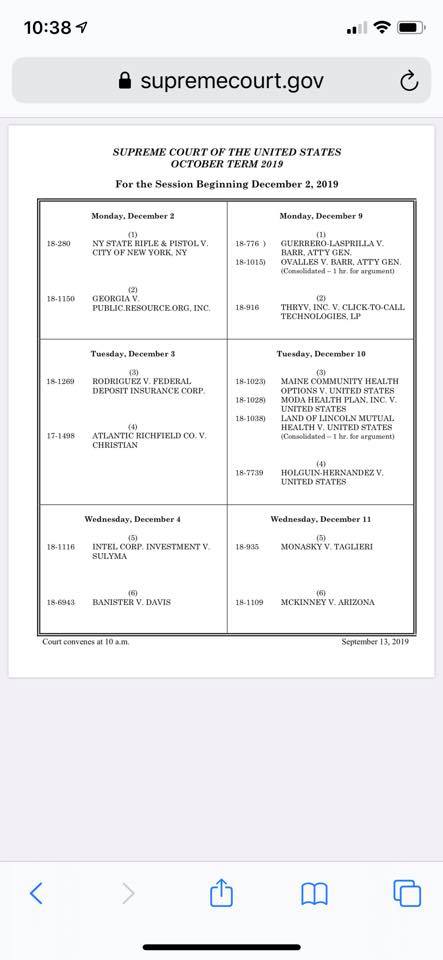Big Law, those mega-law firms which have hundreds of associates slaving away to make partners even richer, doesn’t like guns. They freely donate their time and efforts to groups like Brady United, Giffords Law Center, and their joint Firearms Accountability Task Force. However, don’t ask them to defend guns.
The most recent case is point is mega-firm Kirkland and Ellis LLP. They are the largest law firm in the United States based upon revenues according to Law.com. Yesterday afternoon, fresh on the heels of their major win in NYSRPA v. Bruen, Kirkland and Ellis partners Paul Clement and Erin Murphy announced they were having to leave the firm due to a change in policy.
From Politico:
“We were given a stark choice: either withdraw from ongoing representations or withdraw from the firm,” Clement said in a statement. “Anyone who knows us and our views regarding professional responsibility and client loyalty knows there was only one course open to us: We could not abandon ongoing representations just because a client’s position is unpopular in some circles.”
Through a firm spokesperson, Kirkland confirmed its decision but did not explain its rationale for dropping gun cases. A key attorney at Kirkland, Jon Ballis, said he hoped the firm could continue to work with Clement and Murphy on matters not related to guns.
“We wish them the best of luck in the future and we look forward to collaborating with them in the future in matters not involving the Second Amendment,” Ballis said in a statement.
While the firm biographies of both Clement and Murphy appeared on the Kirkland website earlier this morning, they are now gone. Both Clement and Murphy had served Supreme Court clerkships. Clement was a clerk to the late Justice Antonin Scalia while Murphy served as a clerk to Chief Justice John Roberts. In addition, Clement was the 43rd Solicitor General of the United States.
As the Wall Street Journal put it in an editorial today, “You Won Your Gun Case. You’re Fired.”
They go on to say:
But these days gun-rights advocates are unpopular in the tony precincts of Los Angeles and New York where Kirkland represents business clients. When it comes to core constitutional rights versus corporate retainers that finance summer homes in the Hamptons, the Constitution is a second-class citizen…
Kirkland’s invertebrate abdication illustrates how progressive ideology dominates the commanding heights of American law, business and culture. If you want to know why a groundswell of opposition against this woke conformity is building in the provinces, this is it.
Clement and Murphy have their own op-ed in today’s Wall Street Journal entitled, “The Law Firm That Got Tired of Winning”.
They point out the proper role of a good attorney:
A lawyer can withdraw from a representation for good reason, like a newly discovered conflict of interest. But defending unpopular clients is what we do. The rare individuals and companies lucky enough to be universally popular (for the time being) have less need for lawyers. And the least popular clients are most in need of representation, from the British soldiers after the Boston Massacre to the defendant in the Boston Marathon bombing.
Our adversarial system of justice depends on the representation of controversial clients, no matter which side has most of big law rooting for it. This is particularly true in constitutional cases. Many of our fundamental constitutional guarantees are designed to be countermajoritarian, and many have been vindicated by litigants who are deeply unpopular, but still have a right to march through Skokie, Ill., to confront witnesses against them—or to defend themselves from violence.
I am glad there are ethical attorneys like Paul Clement and Erin Murphy. I am even more glad they were on our side and will continue to be on our side.
UPDATE: Dave Hardy at Arms and The Law blog pointed out something about Kirkland and Ellis that I did not know. The firm thought defending Jeffrey Epstein was just fine but the 2A was icky. Hmm.
In addition, Kirkland lawyers sued the widow of Andrew Breitbart as a continuation of their suit against him back in 2013. What a classy bunch.

